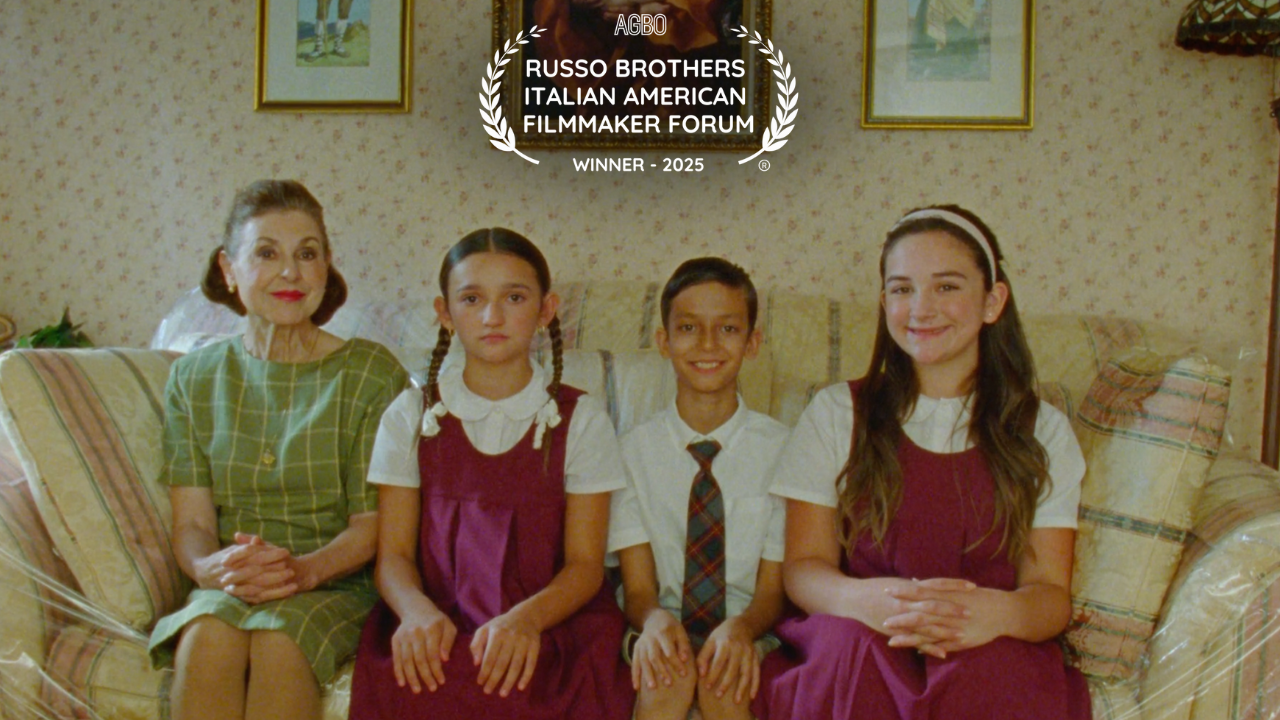"It’s like a fine wine.” A Conversation with Citadel’s Spymaster and Showrunner David Weil

"It’s like a fine wine.” A Conversation with Citadel’s Spymaster and Showrunner David Weil
Imagine being tasked with creating a whole new universe, one that spans countries, languages, relationships, and decades of time. A project of such ambition could intimidate even the most seasoned creators, but David Weil, Citadel showrunner, executive producer, and AGBO’s unofficial Spymaster didn’t hesitate before going on to create the series, which has since proved to be one of Amazon Prime’s biggest global hit ever, Citadel.
Weil is no stranger to complex stories. After co-creating Apple TV’s sci-fi series Invasion, he made his directorial debut with the monologue-based, COVID-era series Solos on Amazon Prime. Then, Weil helmed the revisionist spy thriller Hunters, starring Al Pacino, before immersing himself into Citadel’s expansive global universe.
AGBOVERSE correspondent Angela Matusik had a chance to connect with David about the show’s conceptual origins, creation process, and what fans can expect from the Italian and Indian installments set to release next.
Watch all episodes of Citadel now on Amazon Prime.
Angela Matusik: Let’s start at the very beginning. How did you first become a part of Citadel? What was it that excited you about this project?
David Weil: To be able to work with the team at AGBO, whose work I so admire, was the thing that excited me most about Citadel. That, plus [Amazon Studios] Jen Salke's grand vision for this incredible spy tale that was truly global.Oftentimes, you hear the word “global” and the story will be a white Western male alone who's at the center of something, whether it’s a piece of an IP or universe. Citadel afforded us an opportunity to work with creatives and creators from around the world and build something in tandem. It will span boundaries of tradition and cultures unlike anything before. That's what really pulled me in.
AM: You were really starting from scratch to build a universe with a huge global ambition. How do you begin tackling something so expansive?
DW: Oh, it’s incredibly intimidating, but for me it’s about laying one brick at a time. I always start in a very small place to try to understand who these characters are, what motivates them, what are their wants, their fears, their trauma, and their pasts. You make very elemental ideas and then slowly build and build and build. Then you take a step back and realize each mosaic tile that you’ve laid has created this gorgeous picture. What was different about Citadel was that I had such incredible partners with the Russo Brothers and AGBO, with Gina Gardini from Italy, and with [Krishna] D.K. and Raj [Nidimoru] in India. I wasn't alone in creating this story. There was a contagious excitement about working with partners, locking arms, and working in tandem. It was thrilling.
AM: As you’re describing this, I’m picturing you standing in front of a huge map of the world that’s interactive, that you can draw notes on with your fingers, like something from the Citadel offices.
DW: Oh my God. That sounds much more romantic than the actuality of sitting in a dark room and Zooming and Skyping.
AM: Well, our tools are getting better every day, so you never know. Maybe by Season 2, you’ll have that in place. Can you talk about some of your inspirations or influences early on?
DW: A great deal of storytelling [was] already laid before I joined. I came in and lent a different and new perspective to the piece. The spy story is one that I’ve always loved and it afforded me [a chance] to pay homage to it. And I don’t just mean Bond and Bourne and Mission Impossible. I mean the greats: The 39 Steps, The Lady Vanishes, The great capers of Hitchcock, Tinker Tailor Soldier Spy, which I love. It even means a paranoid thriller like The Conversation, which was a real sort of touch point. The audience will experience great action and tense thriller moments. But they will also experience the great romance between Mason and Nadia, and the caper, and the unraveling of the mystery.
AM: Here at AGBO, people refer to you as the Spymaster; clearly that’s a well-deserved nickname.
DW: Every time I hear it, it sounds so grand. And yet, it’s very humbling. Yes, it’s a very unique and special role, and I feel a lot of privilege to be stepping into those shoes. What it really means is that I have tried to be the keeper of the grand mythology and tapestry of storytelling within the universe. That means having a very important hand in the international installations being made in Italy and India. Ensuring that the moves that they make and the stories that they create all lend themselves to one singular tale, which is the tale of Citadel, the story of a spy agency over [the course] of 100 years. We’ll be propelling into the past and pushing forward into the future. I’m here to keep the train on the tracks.
AM: There must be these moments where you have to allow for a push and pull, to perhaps allow the train down a path that you hadn’t previously anticipated.
DW: Absolutely, that’s the fun of this. The thrill is seeing where these different creators take this story and want to push and pull. At any given moment, DK and Raj may come up with a brilliant idea for a character’s tale in the Indian series, and that may affect something in the bigger universe. It will certainly affect things as we begin to ideate on season two.
AM: Speaking of international creators, you’re American and English is your first language. As you collaborate with others from different cultures, are you gathering a whole new vocabulary of international colloquialisms?
DW: Totally, and yet I do not want to embarrass myself and offer up any of the ones that I’ve learned. But first and foremost, things do get lost in translation. There are nuances and subtleties when watching the Italian series or the Indian series that I don’t catch as an American English speaking viewer. And so it creates a great conversation with the creators around the world. Their audiences within those countries will completely understand the idiom or the nuance or the turn of phrase. But it’s like, how do you translate that for an audience member who may not speak Italian, who may not speak Hindi? And so that leads to so many wonderful conversations. Really, the localization is a great element in this, just translating the series into hundreds of different languages. That is an art I’ve been so amazed by.
AM: Let’s talk about the international installments. Audiences are just about to watch the finale of the first global series. What should fans be anticipating about the upcoming series from Italy and India?
DW: What is incredibly exciting about these future installments is that we get to see characters or stories from different perspectives. Something that may have been a small story point or an Easter egg within our series, will be expanded upon greatly. Citadel is a mystery, right? We’re showing one perspective with the U.S. series, and India and Italy will illuminate a greater universe with greater secrets and lies. Our audiences are really like spies themselves. We are giving them the experience of spies – including being able to travel to new cities to follow a new lead.
AM: What a wonderful analogy. And, as you mentioned, there are Easter eggs in season one, but they won’t be discoverable until after the international installments.
DW: I'm dying to reveal the story of Italy and the story of India because they’re so good. They really collide with the characters and story points of the US. series. I’m excited for the audience.
AM: Well be a good operative and keep quiet, please! You’ve had the opportunity to see a few of the episodes at screenings with a big audience. Is there a specific moment that people have responded to differently, depending on their specific country?
DW: The satire of American exceptionalism was received very well. There was a lot of laughter around some of the jokes that were centered around America’s position in the world stateside. But one thing I learned: [Stanley] Tucci translates in any language. And in every culture, he is beloved – in London and Rome and America and Mumbai, all across the world. That is probably my biggest takeaway.
AM: It’s no surprise, and I’m sure he’d feel very happy to hear you say that. Now that the finale is about to air, there will be a whole new way for people to experience the series. People can clear their schedules and sit down for a wild, six-hour ride. Do you think about different ways that people will experience the series while you’re making it?
DW: For sure. Audiences can consume the six episodes either way. You can consume it once a week, and we’ve tried to include these delicious cliffhangers at the end of each episode to bring the audience back. Citadel is also a thrill-ride popcorn fest. To watch all six [episodes] in one sitting is also an incredible way to enjoy the series. I’m really excited for all the folks who just cannot wait to see what happens next, and to tune in right away for the next one. It’s like a fine wine, you know? You can consume this like a fine wine and enjoy the twists and turns of each week, or you can binge this in one sitting. I think both experiences are truly exciting. Different, but exciting!
For more insider insights, subscribe to the AGBOVERSE newsletter. You’ll always be one step ahead of the action.
.jpg)
Hello from the Russo Brothers!
We make content for fans, and here on AGBOVERSE we are giving you an exclusive behind the scenes look at our content. Sign up now to make sure you don’t miss a thing!

.png)




.png)

.svg)

.svg)
.svg)